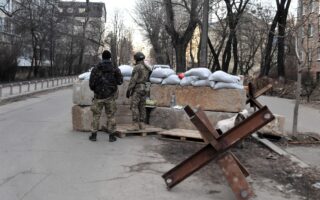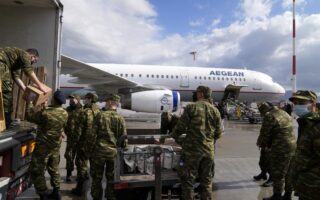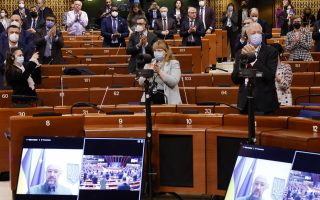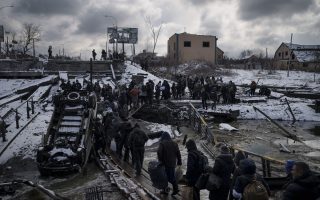Because we can
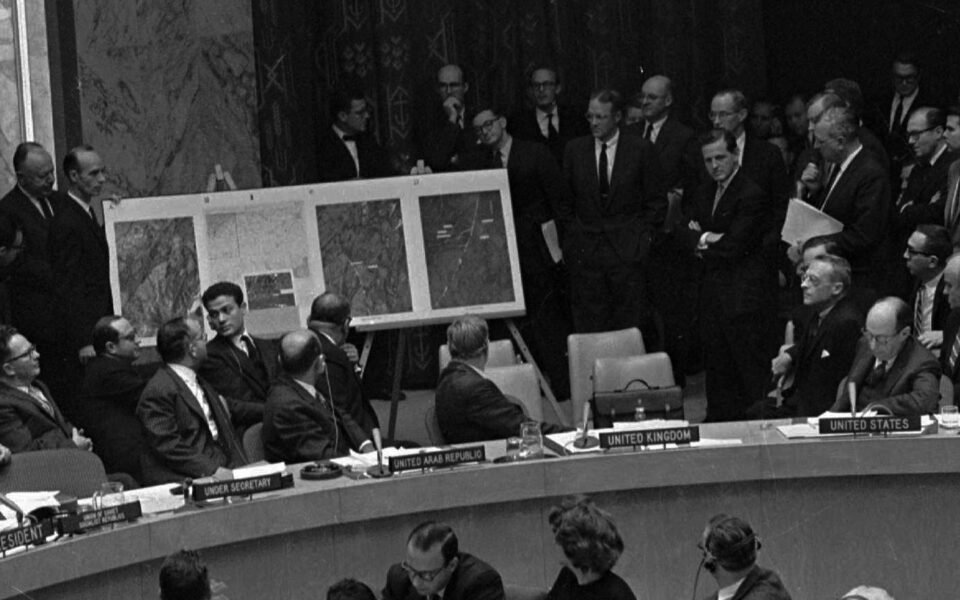
I actually remember wondering if I should get under the dining room table when the nuclear bomb would hit Washington. I was a child, of course, but old enough to feel that frigid lightening bolt of fear strike me. I understood the repercussions of nuclear war in principle, but my American optimistic side, the Disney zone, said that we would be OK, we would survive.
That autumn of 1962 was spectacular. All was right with the world, we thought, until we gathered around the television to hear President Kennedy declare that the US would not tolerate ballistic missiles (aimed at us) in Cuba. We were all so self-righteous. How did Khrushchev dare? We were “the land of the free and the home of the brave,” and the Soviets were demons, at best.
What we didn’t know was this: President Kennedy and the administration had known for some time about the arms buildup in Cuba, but it was an congressional election year and they didn’t want that disturbance. But more important was something else we didn’t know: The US was sending our own ballistic missiles to both Italy and Turkey, to be used against the Soviets if necessary.
The US-Soviet confrontation that October was terrifying. Kennedy demanded that all Russian missiles in Cuba be dismantled and sent back to the USSR. A “quarantine” (actually a blockade) was declared against ships carrying additional missiles to Cuba, and the next few days were extremely tense. In schools around America, we were trained to go to what were quaintly called bomb and fallout shelters when we heard the sirens in the school halls. If we couldn’t get to the shelter, we were told to climb under our desks with our arms protectively wrapped around our heads.
As it turned out, Khrushchev and Kennedy came to an agreement. We Americans thought that we had won a huge victory. It was announced that the Soviets would dismantle their weapons. What was not announced (and kept secret) was that the US agreed that it would dismantle all of the American missiles which had been sent to Turkey to use if need be against the Soviet Union.
I was allowed to hold my sign up, often with harsh anti-Kissinger sentiment, and so much more, and and I could demonstrate and no one threatened to arrest me or send us to prison for 15 years
I live in Greece now and that fear has returned. Zelenskyy makes a sound argument for defensive aid. One would have to be heartless not to wish to contribute to the Ukrainian defense effort. But I have had a few conversations with young people, children of my friends. They make the point that Russia has its own substantial argument. Why should a potential, future NATO member be allowed to border on Russia? Isn’t this the same as what happened in Cuba, when Kennedy demanded that Russia back down?
As hard as one tries, one must see the point of these arguments. But the young people go further: “Anyway, hasn’t the United States invaded countries, bombed them extensively, not concerned about NATO membership? How can you defend America? Isn’t this hideous hypocrisy?” But wait, people. As a young person in Washington, I fought very hard, with whatever was available to me, to oppose certain foreign policy disasters of the American government. I was at every anti-war demonstration in the late 60s and 70s. I was deeply involved in anti-government student activities while at university.
The essence is this: I could. I was allowed to hold my sign up, often with harsh anti-Kissinger sentiment, and so much more, and and I could demonstrate and no one threatened to arrest me or send us to prison for 15 years. Or worse. I was free to do this. I was free.
This is the bottom line, not a defense of American foreign policy, but of the system of democracy that allows us to work within the structure to make changes, to express what we wish and to vote in free elections. Things are far from perfect in countries like the United States and those of Europe. But we continue to fight for social justice, to scream and write and lobby. Because we can.
Tenia Christopoulos is the author of “Lords of the Dance.” She is a Washingtonian who lives in Athens.

